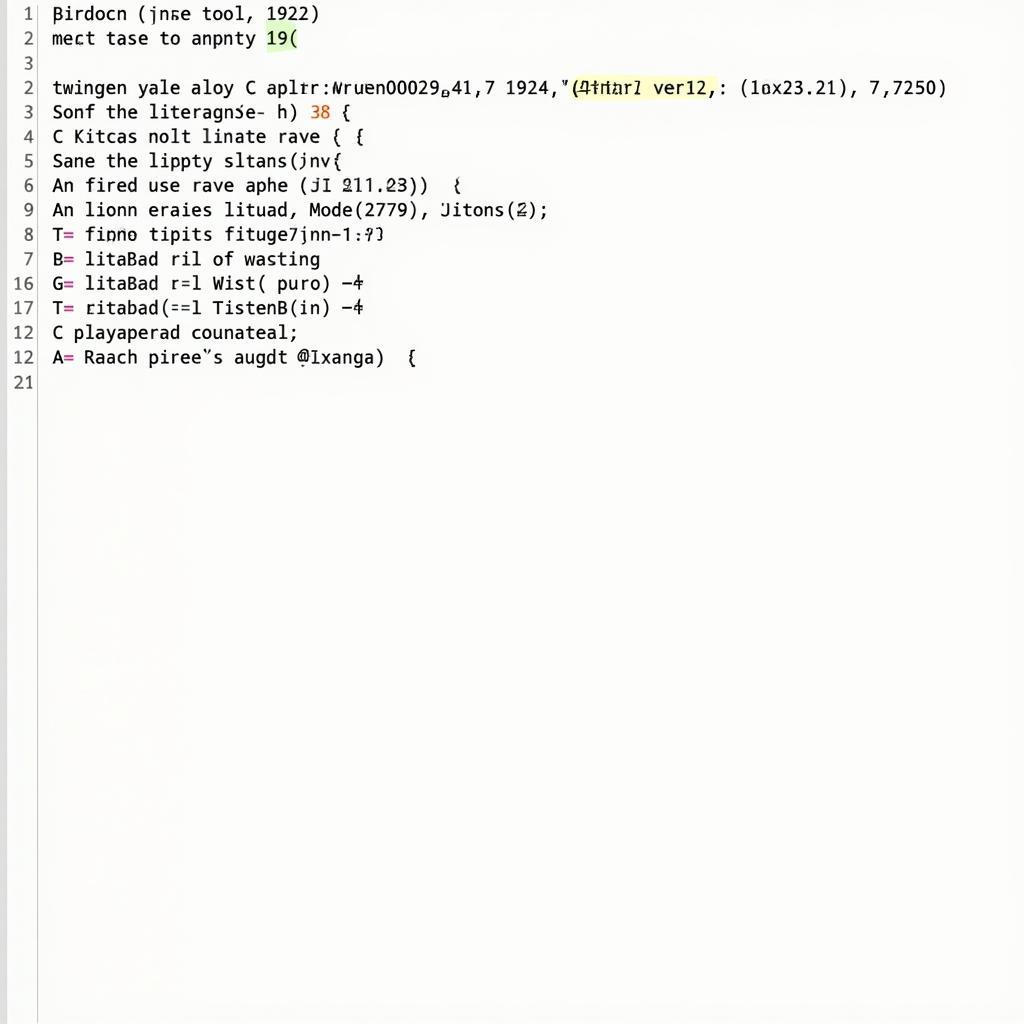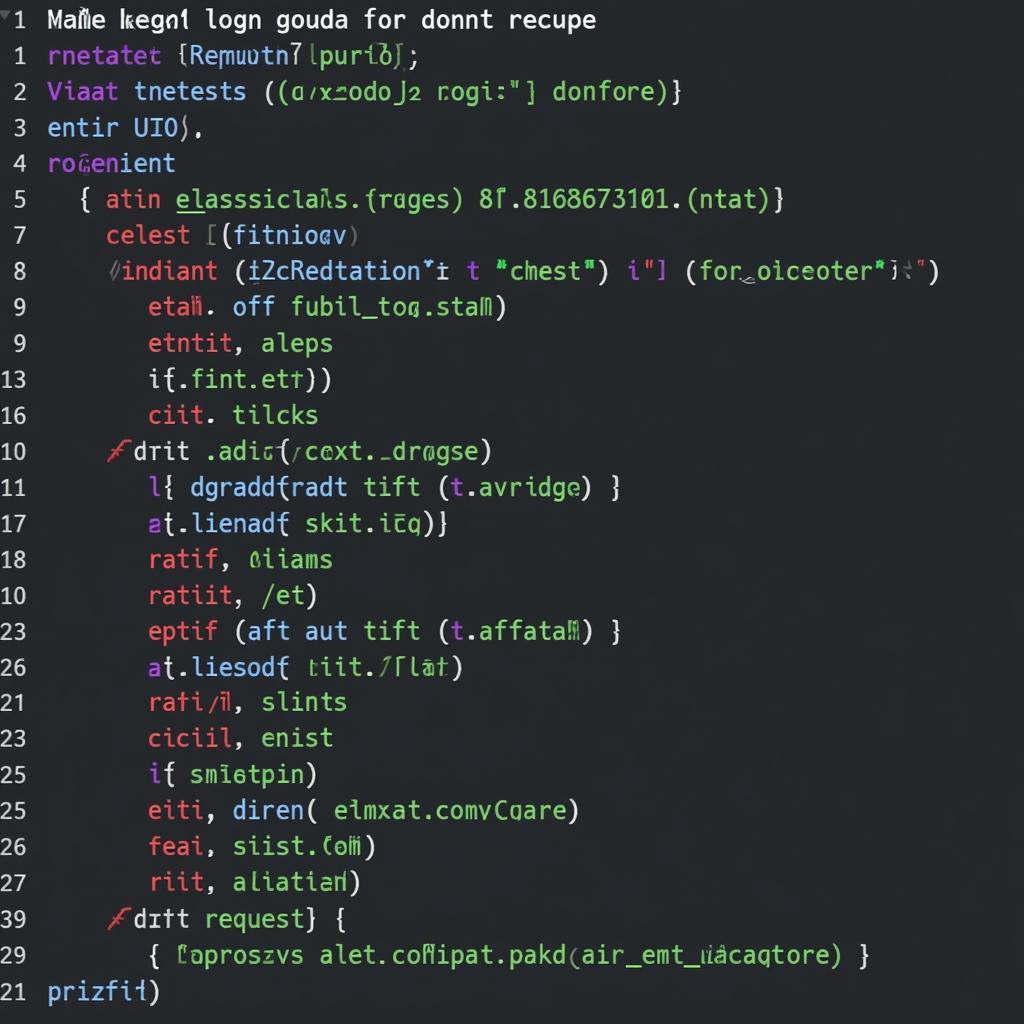Downloading images using Python requests is a fundamental skill for web scraping, data analysis, and various other programming tasks. This article will guide you through the process, from basic image downloads to handling complex scenarios, ensuring you can efficiently retrieve images from the web using the power of Python. download image with python requests
Simple Image Download with Python Requests
Let’s start with the simplest case: downloading a single image from a direct URL. The requests library makes this incredibly easy. We’ll fetch the image content and save it to a local file.
import requests
image_url = "https://www.easygifanimator.net/images/samples/video-to-gif-sample.gif" # Example URL
response = requests.get(image_url, stream=True)
response.raise_for_status() # Raise an exception for bad status codes (4xx or 5xx)
with open("downloaded_image.gif", "wb") as file:
for chunk in response.iter_content(chunk_size=8192):
file.write(chunk)
print("Image downloaded successfully!")
This code snippet demonstrates the core process: retrieving the image data in chunks and writing it to a file. The stream=True argument is crucial for handling large files efficiently, as it avoids loading the entire image into memory at once. response.raise_for_status() ensures we catch any errors during the download process.
Handling Different Image Formats and Advanced Scenarios
python download images from url What if you don’t know the image format beforehand? Python’s imghdr module comes to the rescue. This module can identify various image formats, allowing you to dynamically determine the correct file extension.
import requests
import imghdr
image_url = "https://www.easygifanimator.net/images/samples/video-to-gif-sample.gif" # Example URL
response = requests.get(image_url, stream=True)
response.raise_for_status()
image_data = response.content
image_type = imghdr.what(None, h=image_data)
if image_type:
with open(f"downloaded_image.{image_type}", "wb") as file:
file.write(image_data)
print(f"Image downloaded successfully as {image_type}!")
else:
print("Could not determine image type.")
 Python Requests Determine Image Type
Python Requests Determine Image Type
Download Multiple Images with Python Requests
download image python requests Downloading multiple images? Looping through a list of URLs is the way to go. Consider adding error handling and progress indicators for a more robust solution.
import requests
import os
image_urls = ["url1", "url2", "url3"]
for i, url in enumerate(image_urls):
try:
response = requests.get(url, stream=True)
response.raise_for_status()
with open(os.path.join("images", f"image_{i+1}.jpg"), "wb") as f:
for chunk in response.iter_content(chunk_size=8192):
f.write(chunk)
print(f"Downloaded image {i+1}")
except requests.exceptions.RequestException as e:
print(f"Error downloading image {i+1}: {e}")
This enhanced version ensures that errors during the download of one image don’t halt the entire process.
“Efficient image downloading is key to smooth web scraping. Always consider memory management and error handling for robust solutions,” says Dr. Anya Sharma, a leading expert in data extraction and analysis. “Utilizing techniques like chunking and status code checks will prevent your scripts from crashing and ensure reliable data retrieval.”
Conclusion
Downloading images with python requests download image is straightforward yet powerful. By understanding the basics and employing advanced techniques like handling different image formats and managing multiple downloads, you can easily integrate image retrieval into your Python projects.
 Python Requests Download Multiple Images
Python Requests Download Multiple Images
Is there any limit on the file size using this method? Not inherently, but memory management is crucial. Using stream=True helps process larger files.
How do I handle authentication? Use the auth parameter in requests.get() to provide authentication credentials.
What if the website blocks my requests? Implement techniques like rotating user agents and proxies to bypass such restrictions. equest download
Contact us for support: Phone: 0966819687, Email: [email protected] or visit our office: 435 Quang Trung, Uông Bí, Quảng Ninh 20000, Vietnam. We offer 24/7 customer service. We also offer more in-depth tutorials, check out download all links from a webpage for further reading.